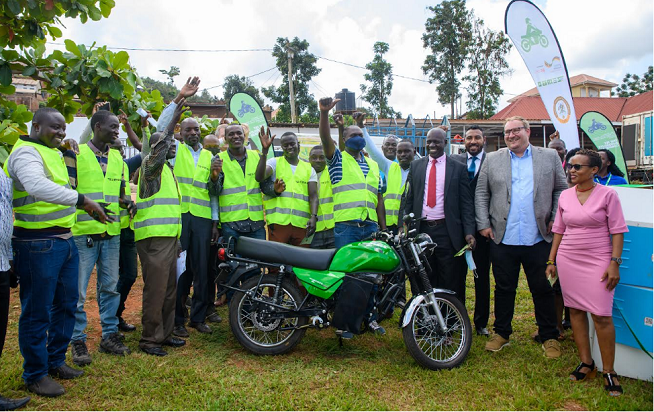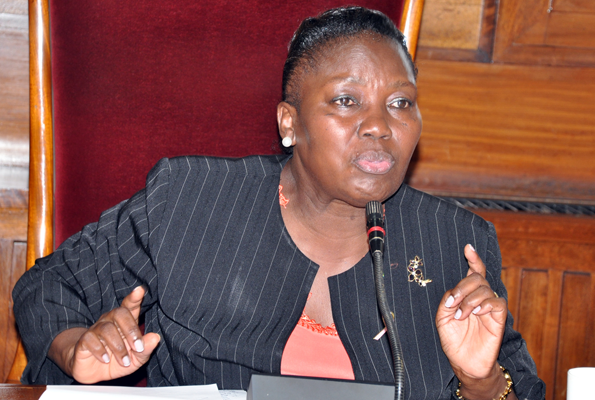The e-mobility corridor presents an opportunity to experience how Uganda is decarbonising the transport sector as well as leading the fight to reduce energy costs
The Ministry of Energy and Mineral Development in partnership with GIZ Uganda’s Energy and Climate Programme (PREEEP), The Powering Renewable Energy Opportunities programme (PREO), and Zembo has launched an e-mobility corridor in Mpigi District.
This activity which is implemented under GIZ PREEEP’s Green People’s Energy (GBE) project is located in Mpigi District, home to one of the four electric motorcycle charging stations along Kampala-Masaka Road.
The charging stations are located about 30km apart in the towns of Mpigi, Buwama, Lukaya (powered by off grid solar only) and in Masaka town powered by both solar and national grid.
This intervention and launch come at a time when there are various global efforts to improve urban air quality to achieve net zero emissions.
Speaking at the launch, the Ministry of Energy and Mineral Development Permanent Secretary, Irene Bateebe, said the promotion of electric mobility falls within the National Development Plan III agenda under the Sustainable Energy Development Programme (SEDP).
“The promotion of electric mobility aims at achieving two key objectives; increasing adoption and use of clean energy and promoting utilisation of energy-efficient practices and technologies,” said Ms Bateebe.
“This is to be done by promoting clean and energy-efficient transport systems, which will increase uptake of e-mobility, cleaner fuels for transport and energy storage. The launch of the e-mobility corridor demonstrates the Ministry’s fulfilment of its mandate.”
“Uganda is leading the continent in electric mobility. At 27 and growing, we now have the biggest network of e-mobility charging stations in Africa. Additionally, Uganda has the only network of charging stations that crosses at least two districts – Kampala, Mpigi and Masaka. This is a feat worth celebrating,” says Titus Kimbowa, Director, Zembo.
Uganda has been experiencing growth in emissions, which, according to a 2019 report by the Ministry of Water and Environment Climate Change Department, have increased from just 53,000 Gg tonnes in 2005 to close to 90,000 Gg tonnes in 2015.
Matthias Schauer, the Ambassador of Germany said, “Energy-related emissions doubled between 2005- 2015 and are expected to be the principal source of future national greenhouse gas emissions growth, driven by economic development, expanding energy access and recent discoveries of fossil fuel resources.
“The limitations in the public transport system make usage of “boda boda” popular which contributes to the carbon emissions. At a time when there are global efforts to improve urban air quality and to achieve net zero emissions, this model which promotes use of electric, solar powered “boda bodas” supports climate mitigation and adaptation in Uganda. The project will, therefore, support efforts to avoid a detrimental trajectory of increasing greenhouse gas emissions in Uganda,” he adds.
The e-mobility corridor presents an opportunity to experience how Uganda is decarbonising the transport sector as well as leading the fight to reduce energy costs, especially on fuel and noise pollution caused by fuel-powered motorcycles.





